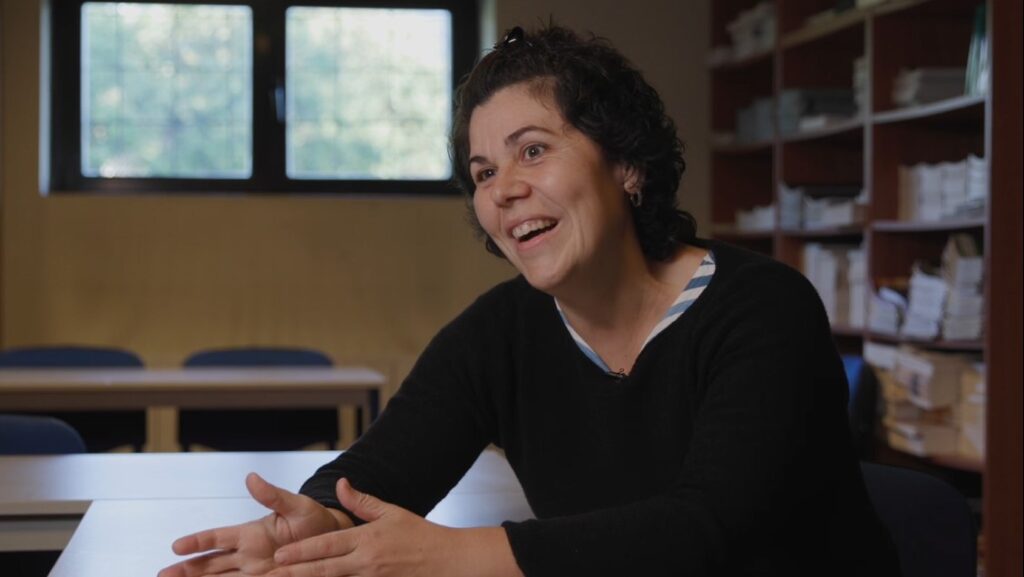
Alazne Intxauspe, organic farmer and member of the executive of the agricultural union EHNE-Bizkaia
Alazne comes from a rural background, although her parents did not make their living from the farm. Although they raised animals and cultivated a vegetable garden, it was all for their own consumption. Her university education and seven years’ work in television production seemed to keep her away from the agricultural sector. However, in 2012, together with her partner, she took an agroecological course offered by EHNE, which marked the beginning of her journey into ecological horticulture. Her initial motivation was not so much production as concern for food: she said she was interested in “how we feed ourselves, what we eat, where what we eat comes from…”. This concern led her to explore agroecology as a possible way of life.
In addition to horticultural production, Alazne and her partner started a small cannery, and since 2014 she has been registered as a farmer. Alongside her productive work, she has been very involved in the organisational and trade union sphere, forming part of EHNE Bizkaia, Etxalde and Vía Campesina. For her it has always been important to “carry the hoe and the pen”, to combine practical work with reflection and organisation. Her entry into the agricultural union was very much marked by the context: the union was looking to incorporate young people and women, and as she herself acknowledges, “I let myself go and that’s how I joined the executive”.
The link between agroecology and feminism is one of the pillars of her commitment. Although EHNE’s strategic change towards an agroecological model was made before her arrival, she considers that in recent years the feminist perspective has also been deepened. She highlights the work of women from previous generations such as Maritxu, a pioneer in horticulture in a livestock farming environment, and although “she probably didn’t call it feminism, for me it is a clear precedent”. Alazne defends the fact that women have historically been at the forefront of the farmhouse model, of the family farming model, and that they have often sustained this system with a logic of care, sustainability and food sovereignty, without the need for grand discourses.
However, she is also critical of the structural barriers that still persist. She points out that the burden of care and the difficulty of achieving real economic viability hinder women’s full participation. She appreciates certain legislative advances, such as the Statute for Women Farmers (approved by the Basque Parliament), but also expresses doubts about its impact: “it talks about everything… but it stops there. If it doesn’t go down to concrete programmes or concrete actions…”. As for the mechanisms of representation, she does not believe that the simple establishment of quotas guarantees a real transformation without prior work at the grassroots level.
From her experience, she insists that women’s participation should not be reduced to a question of gender alone, but should be open to all forms of diversity. She considers it essential to build a living organisation that takes into account different realities, such as immigration, and to create shared leadership. Even so, she recognises that day-to-day life imposes many limitations: “we produce, we sell, we do the paperwork… and then it is complicated to participate in other spaces, even if you want to”.
In spite of everything, she sees significant progress. In her agroecological environment, women’s participation is active, there is more training, more shared spaces and greater visibility. She recognises that “thanks to the work that others have done, we are living in a different situation today”. For her, change does not depend only on laws or policies, but on a real, collective and constant commitment that is built from the bottom up. And if public policies really want to promote women in the first sector, it is a great contradiction that at the same time they promote an industrial model of agriculture.
